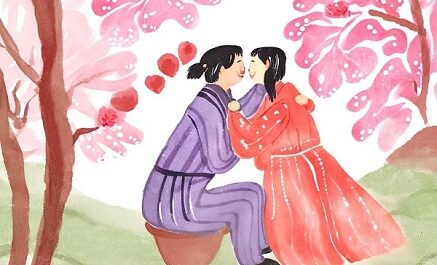Learn Chinese Idiom with Pinyin and English

- Idiom in Chinese-儿女心肠。
- Pinyin of Idiom– ér nǚ xīn cháng.
- Idiom’s Meaning in English– The idiom “ér nǚ xīn cháng” refers to a person who has a kind and compassionate heart, especially towards family members and close friends. It depicts a person as having a tender and caring nature, ready to show sympathy and understanding towards others in need.
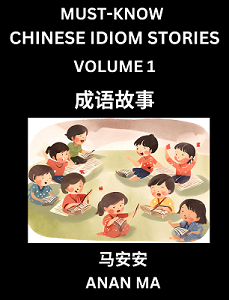
Chinese Idiom Stories Books (HSK All Levels):
- Books to Learn Chinese Idiom Stories (Part 1)
- Books to Learn Chinese Idiom Stories (Part 2)
- Books to Learn Chinese Idiom Stories (Part 3)
Learn Chinese Idiom Story in English (成语故事的英文)
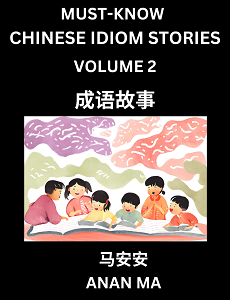
Once upon a time, there was a young mother who had a lovely daughter. The mother took great care of her daughter, always treating her with a gentle heart. No matter what difficulties or setbacks the daughter encountered, the mother would listen patiently and comfort her with warm words. This selfless maternal love made the daughter feel deeply secure and happy.
One day, the daughter saw a wounded bird and felt great pity for it. She immediately brought the bird home and, using the methods taught by her mother, took care of it carefully. Under the daughter’s attentive care, the bird’s wounds healed quickly, and it regained its vitality. The mother, seeing this, felt deeply gratified and said to her daughter, “You have a compassionate heart, knowing how to care for and look after others. This is what I am most proud of.”
Learn Idiom Story in Chinese (成语故事)
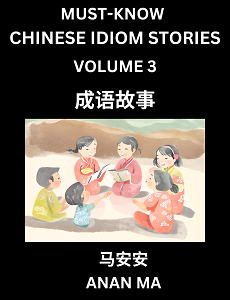
从前,有一个年轻的母亲,她有一个可爱的女儿。这位母亲对女儿呵护备至,总是用一颗温柔的心去照顾她。无论女儿遇到什么困难或挫折,母亲都会耐心倾听,用温暖的话语安慰她。这种无私的母爱让女儿感受到了深深的安全感和幸福感。
有一天,女儿看到一只受伤的小鸟,心疼不已。她立刻带小鸟回家,用母亲教她的方法,细心地照顾它。在女儿的精心照料下,小鸟的伤口很快愈合了,恢复了往日的活力。母亲看到这一幕,深感欣慰,对女儿说:“你有一颗儿女心肠,懂得关爱和照顾他人,这是我最骄傲的事情。”
Learn Keywords with English, Simplified Chinese Characters, and Pinyin (关键词)
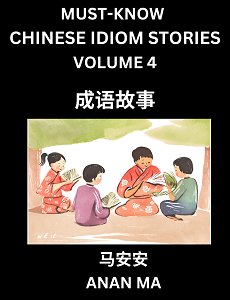
- 从前(cóng qián): in the past
- 母亲(mǔ qīn): mother
- 女儿(nǚ ér): daughter
- 呵护备至(hē hù bèi zhì): take great care of
- 温柔(wēn róu): gentle
- 耐心倾听(nài xīn qīng tīng): listen patiently
- 安慰(ān wèi): comfort
- 无私(wú sī): selfless
- 关爱(guān ài): care for
- 照顾(zhào gù): take care of
- 欣慰(xīn wèi): feel gratified
- 儿女心肠(ér nǚ xīn cháng): compassionate heart
Pinyin of Idiom Story (故事的拼音)
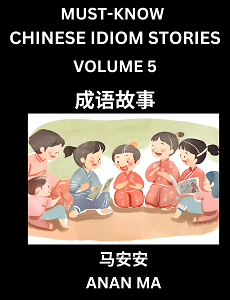
Cóngqián, yǒuyīgè niánqīng de mǔqīn, tā yǒu yīgè kě’ài de nǚ’ér. Zhè wèi mǔqīn duì nǚ’ér hēhù bèizhì, zǒng shì yòng yī kē wēnróu de xīn qù zhàogù tā. Wúlùn nǚ’ér yù dào shénme kùnnán huò cuòzhé, mǔqīn dūhuì nàixīn qīngtīng, yòng wēnnuǎn de huàyǔ ānwèi tā. Zhè zhǒng wúsī de mǔ’ài ràng nǚ’ér gǎnshòu dàole shēn shēn de ānquán gǎn hé xìngfú gǎn.
Yǒu yītiān, nǚ’ér kàn dào yī zhǐ shòushāng de xiǎo niǎo, xīnténg bùyǐ. Tā lìkè dài xiǎo niǎo huí jiā, yòng mǔqīn jiào tā de fāngfǎ, xìxīn dì zhàogù tā. Zài nǚ’ér de jīngxīn zhàoliào xià, xiǎo niǎo de shāngkǒu hěn kuài yùhéle, huīfùle wǎngrì de huólì. Mǔqīn kàn dào zhè yīmù, shēn gǎn xīnwèi, duì nǚ’ér shuō:“Nǐ yǒu yī kē érnǚ xīncháng, dǒngdé guān’ài hé zhàogù tārén, zhè shì wǒ zuì jiāo’ào de shìqíng.”
